15 years one-stop China custom CNC machining parts factory
 146 |
Published by VMT at Feb 12 2025 | Reading Time:About 6 minutes
146 |
Published by VMT at Feb 12 2025 | Reading Time:About 6 minutes
Fasteners are the backbone of countless industries, from construction and automotive to aerospace and heavy machinery. Choosing the right fastener material is critical for ensuring strength, durability, and corrosion resistance. Stainless steel fasteners stand out due to their exceptional resistance to rust, high tensile strength, and long lifespan.
Stainless steel fasteners offer superior corrosion resistance, excellent mechanical properties, and reliability in extreme environments. They are widely used in construction, marine, automotive, and industrial applications due to their ability to withstand harsh conditions.
In this guide, we’ll explore everything you need to know about stainless steel fasteners, including their types, applications, and benefits.
Fasteners are mechanical components used to join two or more objects together securely. They come in various shapes, sizes, and materials, serving as essential components in industries that require durable and reliable connections.
Fasteners can be permanent (such as rivets and welding fasteners) or removable (such as screws and bolts). Their effectiveness depends on the material, design, and application-specific factors, including environmental exposure and load-bearing requirements.
Among all fastener materials, stainless steel is a preferred choice due to its superior corrosion resistance, strength, and versatility, making it ideal for applications in demanding environments.
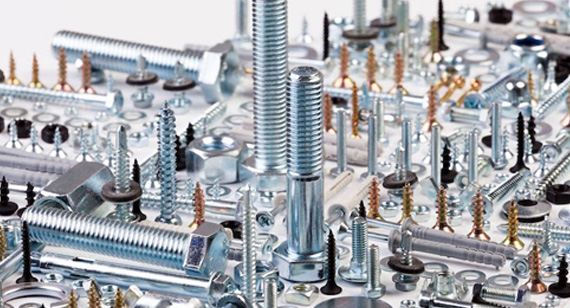
Metal fasteners play a crucial role in multiple industries by ensuring secure and durable connections. They are widely used in construction, aerospace, automotive, and marine applications due to their strength, stability, and resistance to wear.
Lightweight Metal Fasteners
Lightweight metals such as aluminum and titanium are commonly used in aerospace, electronics, and automotive industries. These fasteners help reduce overall weight without compromising strength, making them ideal for applications requiring high efficiency and performance.
Heavy-Duty Fasteners
Industries such as construction, shipbuilding, and heavy machinery rely on heavy-duty fasteners made from stainless steel, carbon steel, and high-strength alloys. These fasteners provide high load-bearing capacity, excellent corrosion resistance, and long service life, making them indispensable in structural applications.
Regardless of the weight requirements, metal fasteners ensure strong and reliable connections across a variety of industries.
Fasteners come in many different types, each designed for specific applications and load-bearing requirements.
Threaded Fasteners
Threaded fasteners are designed to form a secure mechanical connection between components. Common types include:
These fasteners offer excellent load-bearing capacity and are widely used in construction, automotive, and aerospace applications.
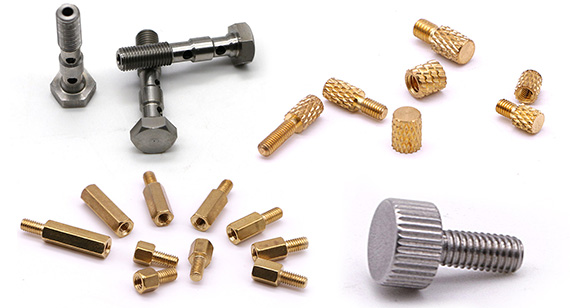
Unthreaded Fasteners
Unlike threaded fasteners, unthreaded fasteners create mechanical bonds through compression, friction, or adhesion. Examples include:
These fasteners are ideal for temporary or semi-permanent assemblies, offering quick installation and easy removal.
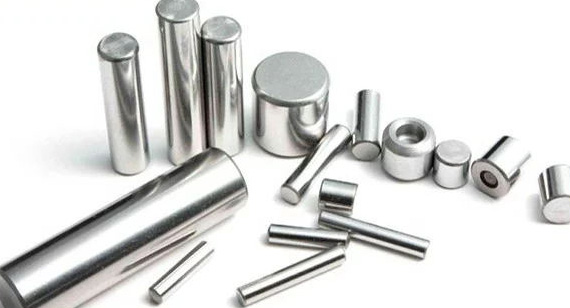
Rivets
Rivets are permanent fasteners commonly used in aerospace, automotive, and structural applications. They consist of a cylindrical shaft and a head, which deforms when installed to create a secure joint.
Key benefits of rivets:
Rivets provide a strong and tamper-resistant connection, making them ideal for aircraft, bridges, and heavy machinery.
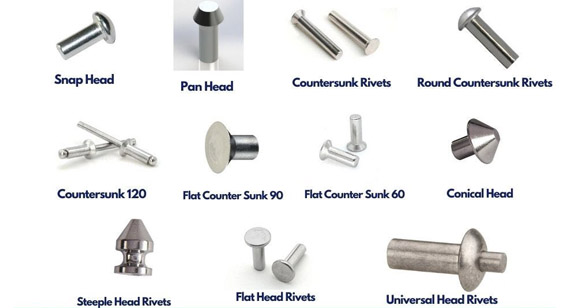
Corrugated Metal Fasteners
Corrugated metal fasteners are designed for joining thin materials, such as sheet metal, aluminum panels, and roofing materials. These fasteners have a zigzag or corrugated shape, allowing them to grip surfaces more effectively.
They are frequently used in automotive, roofing, and HVAC systems, offering enhanced durability and load distribution.
Specialty Metal Fasteners
In addition to standard threaded and unthreaded fasteners, there are specialty fasteners designed for specific applications.
Examples of Everyday Non-Threaded Fasteners:
Each of these fasteners serves a unique function in its respective industry, ensuring stability, alignment, and load distribution.
Stainless steel fasteners are widely chosen for their corrosion resistance, strength, and longevity. Here’s why they outperform other materials:
These properties make stainless steel fasteners the preferred choice for construction, marine, aerospace, and industrial applications.
The manufacturing process of steel fasteners plays a crucial role in their strength, durability, and overall performance. The right production method ensures that fasteners can withstand high loads, corrosion, and extreme environmental conditions. Two of the most commonly used methods for manufacturing steel fasteners are CNC machining and cold heading.
Steel fasteners are primarily manufactured using CNC machining or cold heading. CNC machining offers precision and customization, while cold heading is a cost-effective, high-speed process for producing large quantities of durable fasteners.
Choosing the appropriate manufacturing method depends on factors such as material properties, production volume, and required precision.
CNC Machining for Fastener Manufacturing
What Is CNC Machining?
CNC machining is a high-precision manufacturing process that uses programmed tools to shape metal into fasteners. The process involves turning, milling, drilling, and threading, ensuring that each fastener meets strict dimensional tolerances.
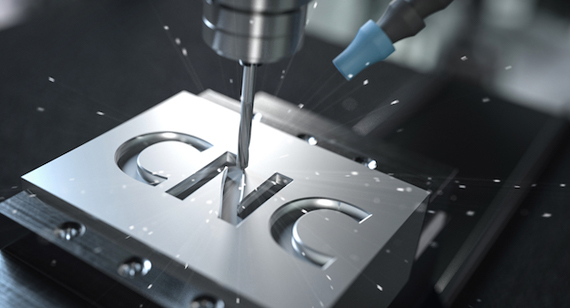
Key Features of CNC Machining for Fasteners:
Advantages of CNC Machining for Fasteners
CNC machining provides unparalleled accuracy and repeatability, making it the preferred choice for industries such as aerospace, medical, and precision engineering.
Precision & Quality:
CNC-machined fasteners meet tight tolerances, ensuring a perfect fit and high mechanical reliability.
Customization & Complexity:
Unlike traditional methods, CNC machining can produce special fasteners with unique threads, shapes, and coatings.
Material Compatibility:
CNC machining supports stainless steel CNC machining parts, high-strength alloys, and corrosion-resistant materials.
Rapid Prototyping:
Ideal for low-volume production and custom designs, CNC machining helps manufacturers develop and test new fastener designs.
Because of its superior accuracy and flexibility, CNC machining is widely used for manufacturing high-performance stainless steel fasteners.
Cold Heading Process for Fastener Manufacturing
What Is the Cold Heading Process?
Cold heading is a high-speed metal forming process used to manufacture steel fasteners without excessive material waste. Instead of cutting metal away, cold heading reshapes metal at room temperature using high-pressure dies and punches.
Key Features of Cold Heading for Fasteners:
Advantages of Cold Heading for Fasteners
Cold heading offers several benefits that make it the go-to manufacturing method for high-volume fastener production.
Cost-Effective Mass Production:
The process allows manufacturers to produce large quantities of fasteners at a lower cost per unit, making it ideal for automotive, construction, and industrial applications.
Increased Strength & Durability:
Cold heading work-hardens the metal, improving tensile strength and fatigue resistance, making fasteners stronger and longer-lasting than those produced by machining.
Material Waste Reduction:
Unlike CNC machining, which removes material, cold heading reshapes metal, significantly reducing scrap and production waste.
Consistent Quality & Precision:
High-speed cold heading machines ensure uniform fastener size, shape, and performance, essential for high-volume industries.
Faster Production Speeds:
Cold heading can produce thousands of fasteners per hour, making it the most efficient method for bulk manufacturing.
Because of its high efficiency and material savings, cold heading is the preferred method for producing standard bolts, screws, and rivets at an industrial scale.
| Feature | CNC Machining | Cold Heading |
| Production Volume | Low to Medium | High |
| Precision & Tolerances | Extremely High | Moderate |
| Customization | High | Limited |
| Material Waste | Higher | Minimal |
| Strength & Durability | High | Very High (work-hardened) |
| Lead Time | Longer | Shorter |
| Cost Per Unit | Higher | Lower for mass production |
Choosing the Right Manufacturing Method
Both manufacturing methods offer unique advantages, and the best choice depends on project requirements, volume needs, and budget considerations.
Conclusion: CNC Machining vs. Cold Heading for Fasteners
The manufacturing method you choose for steel fasteners depends on factors like cost, precision, and production scale.
When selecting fasteners for industrial applications, aerospace, or construction, understanding the manufacturing process helps ensure optimal performance and cost-efficiency.
For custom CNC machining services, precision stainless steel fasteners, and high-quality CNC prototype machining, VMT CNC Factory provides advanced solutions to meet your needs.
Fasteners play a critical role in ensuring the stability, strength, and longevity of mechanical assemblies. Whether it's bolts, screws, clamps, or pins, the metal composition of fasteners significantly impacts their durability, corrosion resistance, and load-bearing capacity. Choosing the right metal is essential for achieving a secure and long-lasting connection in construction, automotive, aerospace, and industrial applications.
The best metal for fasteners depends on environmental conditions, mechanical stress, and application requirements. Common materials include stainless steel, aluminum, titanium, brass, bronze, and high-strength alloys. Each metal has unique properties suited for different applications.
Key Considerations for Choosing Fastener Materials
When selecting the ideal metal for fasteners, it's crucial to evaluate the following factors:
Selecting the right fastener metal ensures structural integrity, safety, and cost-effectiveness.
1. Stainless Steel Fasteners
Stainless steel is one of the most widely used materials for fasteners due to its corrosion resistance, strength, and versatility.
Key Features:
Best for: Outdoor structures, marine environments, industrial machinery, and medical devices.
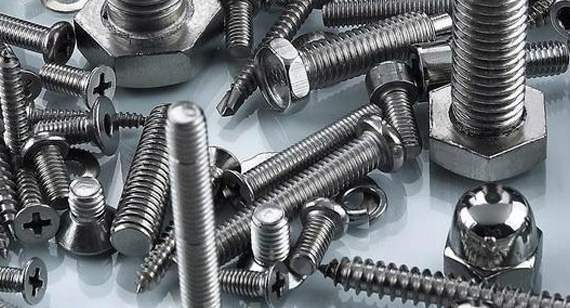
2. Carbon Steel Fasteners
Carbon steel is the most cost-effective and widely used metal for general-purpose fasteners. It is classified into low, medium, and high carbon steel based on strength and hardness.
Key Features:
Best for: Construction, automotive, and heavy machinery applications where high strength is required.
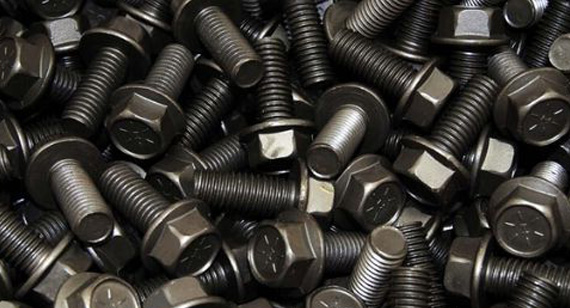
3. Aluminum Fasteners
Aluminum is a lightweight, corrosion-resistant metal often used in industries where weight reduction is essential.
Key Features:
Best for: Aerospace, electronics, automotive, and consumer products where weight is a key factor.
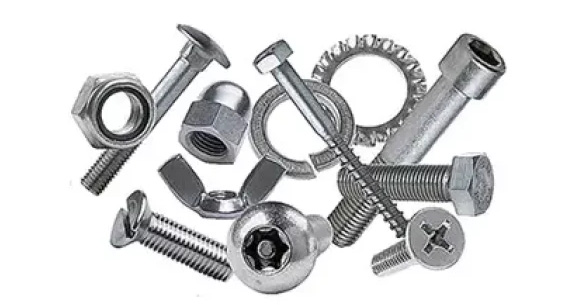
4. Brass and Bronze Fasteners
Brass and bronze are non-magnetic, corrosion-resistant metals commonly used in marine and electrical applications.
Brass (Copper + Zinc):
Bronze (Copper + Tin):
Best for: Electrical components, marine hardware, and decorative applications.
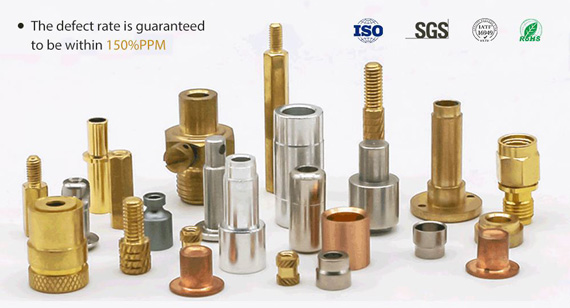
5. Titanium Fasteners
Titanium is a high-performance metal known for its strength, corrosion resistance, and lightweight properties.
Key Features:
Best for: Aerospace, medical implants, and high-performance sports equipment.
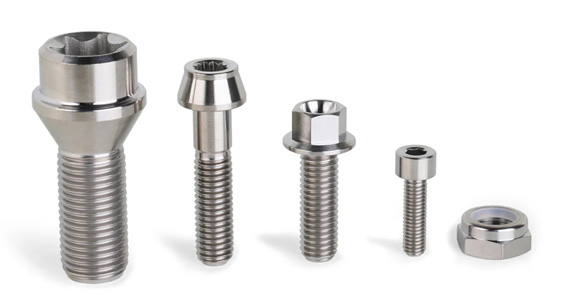
6. High-Performance Alloy Fasteners (Inconel, Monel, Hastelloy)
These nickel-based superalloys are designed for extreme environments where standard metals would fail.
Inconel:
Monel:
Hastelloy:
Best for: Aerospace, chemical processing, and extreme-temperature applications.
| Material | Strength | Corrosion Resistance | Weight | Cost | Best Applications |
| Stainless Steel | High | Excellent | Medium | $$ | Marine, food processing, construction |
| Carbon Steel | Very High | Low (unless coated) | Heavy | $ | Structural, automotive, industrial |
| Aluminum | Medium | High | Very Light | $$ | Aerospace, automotive, electronics |
| Brass/Bronze | Medium | Very High | Heavy | $$$ | Electrical, marine, decorative |
| Titanium | Very High | Excellent | Light | $$ | Aerospace, medical, extreme environments |
| Inconel/Monel/Hastelloy | Extreme | Extreme | Heavy | $$$ | Jet engines, chemical plants, marine |
Conclusion: Selecting the Best Fastener Material
Choosing the right fastener material is crucial for ensuring performance, durability, and cost-effectiveness.
Understanding the properties of each metal helps manufacturers and engineers select the most suitable fasteners for their applications.
For custom CNC machining services, stainless steel CNC machining parts, and high-quality fasteners, VMT CNC Factory provides industry-leading solutions tailored to your needs.
Fasteners play a crucial role in structural integrity, mechanical performance, and safety across various industries. Choosing the right material for fasteners directly impacts durability, corrosion resistance, and long-term cost-effectiveness. Stainless steel fasteners are among the most popular choices due to their exceptional strength, resistance to rust and corrosion, and versatility in demanding environments.
Stainless steel fasteners offer superior corrosion resistance, high strength, and long-lasting durability. They are ideal for outdoor, marine, industrial, and high-temperature applications where traditional steel fasteners would fail due to rust and degradation.
Key Benefits of Stainless Steel Fasteners
1. Exceptional Corrosion Resistance
One of the most significant advantages of stainless steel fasteners is their resistance to rust and corrosion. Thanks to their chromium content (at least 10.5%), stainless steel forms a passive oxide layer that protects it from oxidation and environmental damage.
Best for: Marine applications, bridges, construction, and corrosive industrial settings.
2. High Strength and Load-Bearing Capacity
Stainless steel fasteners offer exceptional mechanical strength, making them suitable for high-stress applications.
Best for: Structural engineering, automotive, aerospace, and heavy machinery.
3. Longevity and Low Maintenance
Unlike carbon steel fasteners, which require protective coatings or regular maintenance, stainless steel fasteners are naturally durable and require minimal upkeep.
Best for: Long-term infrastructure projects, industrial plants, and maintenance-free applications.
4. Temperature and Chemical Resistance
Stainless steel fasteners perform well under extreme temperatures and chemical exposure, making them ideal for harsh environments.
Best for: Chemical plants, oil refineries, medical equipment, and high-heat environments.
5. Versatility and Wide Range of Applications
Stainless steel fasteners come in a variety of types and sizes, making them suitable for diverse industries and applications.
Best for: Custom CNC machining parts, complex assembly projects, and precision manufacturing.
Stainless steel fasteners are available in multiple designs to meet different mechanical and structural requirements. Some of the most commonly used stainless steel fasteners include:
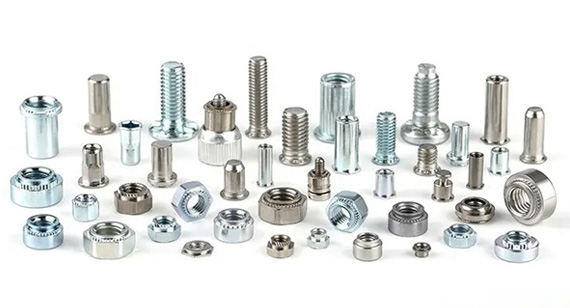
1. Stainless Steel Bolts and Screws
Best for: Structural connections, machine assembly, and mechanical systems.
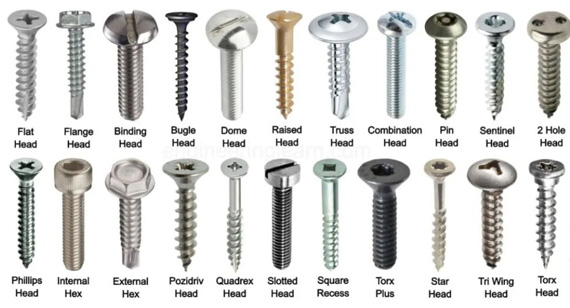
2. Stainless Steel Nuts and Washers
Best for: Securing bolts, distributing load, and reducing surface damage.
3. Stainless Steel Threaded Fasteners
Best for: Industrial and heavy-duty applications requiring high-strength fastening.
4. Specialty Stainless Steel Fasteners
Best for: Specialty applications requiring secure locking mechanisms.
Conclusion: Why Stainless Steel Fasteners Are the Best Choice
Choosing stainless steel fasteners ensures durability, corrosion resistance, and high performance across a wide range of applications. Compared to carbon steel, aluminum, and other metal fasteners, stainless steel offers longer service life, lower maintenance, and superior strength.
With custom CNC machining services, VMT CNC Factory can manufacture high-quality stainless steel CNC machining parts, precision fasteners, and custom components to meet your exact requirements.
Selecting the right stainless steel grade for fasteners is critical for ensuring strength, corrosion resistance, and durability. Different stainless steel grades offer varied mechanical properties, making them suitable for specific applications such as marine environments, high-temperature conditions, or structural loads.
The best stainless steel grades for fasteners are 304, 316, and 410. 304 stainless steel is widely used for general applications, 316 stainless steel is best for corrosive and marine environments, and 410 stainless steel provides high strength and hardness for demanding applications.
Comparison of Common Stainless Steel Grades for Fasteners
| Grade |
Composition & Properties |
Best Applications |
| 304 (A2) |
Excellent corrosion resistance, good strength, cost-effective | General construction, automotive, household appliances |
| 316 (A4) |
Superior corrosion resistance (molybdenum addition), marine and chemical resistance | Marine, chemical plants, food processing |
| 410 |
High strength, hardened by heat treatment, lower corrosion resistance | High-stress applications, machinery, tools |
| 430 |
Magnetic, moderate corrosion resistance, lower cost | Indoor applications, decorative use |
Best Overall Choice: 304 stainless steel for most applications, 316 stainless steel for marine or chemical exposure, and 410 stainless steel for strength-critical applications.
1. Head Type and Torque Issues
The head type of a fastener determines installation ease, torque distribution, and tool compatibility.
Tip: Choose a head type based on installation requirements, available tools, and torque needs.
2. Thread Type
Thread design affects the fastener’s grip, load distribution, and resistance to loosening.
Tip: For high-strength fastening, use fine threads; for quick assembly, use coarse threads.
3. Bolt or Stud Length
The length of a bolt or stud must be sufficient to engage enough threads while allowing proper load distribution.
Tip: Ensure at least 1.5 times the diameter of thread engagement for secure fastening.
4. End Design
Fastener ends affect thread engagement, assembly ease, and mechanical performance.
Tip: Select an end design based on assembly conditions and required holding strength.
The ASTM (American Society for Testing and Materials) provides specifications for stainless steel fasteners to ensure quality, strength, and corrosion resistance.
| Standard | Description |
| ASTM A193 | High-strength stainless steel fasteners for high-pressure and high-temperature applications. |
| ASTM A194 | Nuts and washers for use with ASTM A193 bolts. |
| ASTM A320 | Bolts, screws, and studs for low-temperature service. |
| ASTM F593 | General-purpose stainless steel fasteners, including bolts and screws. |
| ASTM F594 | Stainless steel nuts for fastening applications. |
Tip: Always ensure fasteners meet ASTM standards for safety, quality, and reliability.
Choose fasteners that comply with ASTM standards to ensure durability and safety.
Stainless steel fasteners play a crucial role in various industrial applications, where durability, corrosion resistance, and strength are essential. Whether in construction, marine, automotive, aerospace, food processing, or chemical and pharmaceutical industries, stainless steel fasteners provide long-lasting reliability and mechanical integrity.
Stainless steel fasteners are widely used in construction, marine, automotive, aerospace, food processing, and chemical industries due to their high corrosion resistance, strength, and durability.
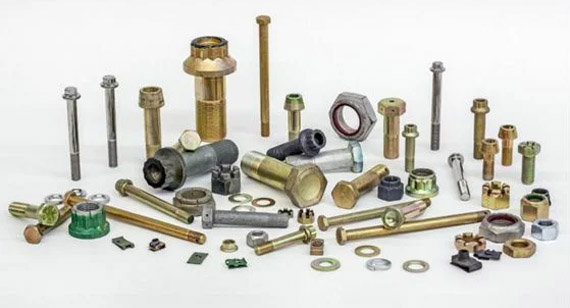
1. Construction Industry
Stainless steel fasteners are vital in structural engineering, bridges, buildings, and infrastructure projects due to their:
Common fasteners used: Stainless steel bolts, nuts, washers, and anchor fasteners for steel structures, concrete fastening, and metal frameworks.
2. Marine Industry
The marine environment exposes metal to saltwater, humidity, and extreme weather, making stainless steel fasteners essential due to:
Best stainless steel grade: 316 stainless steel fasteners, ideal for boat building, dock construction, and offshore platforms.
Stainless steel fasteners are widely used in vehicle assembly, engine components, and safety systems due to their:
Common applications: Stainless steel bolts, screws, and clamps in chassis assembly, braking systems, and fuel delivery systems.
4. Aerospace Industry
The aerospace industry demands high-performance fasteners that can withstand extreme temperatures, pressure variations, and mechanical stress.
Best stainless steel grade: A286 stainless steel (high-temperature fasteners for aircraft structures and jet engines).
5. Food Processing Industry
In food manufacturing, stainless steel fasteners ensure hygiene, non-toxicity, and corrosion resistance.
Common applications: Used in food conveyor belts, mixing machines, commercial kitchens, and dairy processing equipment.
6. Chemical and Pharmaceutical Industry
Stainless steel fasteners are essential in chemical processing plants and pharmaceutical manufacturing due to:
Best stainless steel grade: 316 stainless steel fasteners, ideal for chemical reactors, pipelines, and laboratory equipment.
Key Takeaways
When it comes to high-performance fasteners, selecting the right supplier is as important as choosing the right material. VMT stainless steel fasteners offer unmatched corrosion resistance, strength, and reliability, ensuring long-lasting performance across multiple industries. Whether you need fasteners for construction, marine, automotive, aerospace, or custom CNC machining applications, VMT delivers quality-assured solutions tailored to your needs.
VMT stainless steel fasteners provide exceptional corrosion resistance, high strength, strict quality assurance, and customization options for industrial, commercial, and precision engineering applications.
1. Corrosion Resistance
One of the key advantages of VMT stainless steel fasteners is their superior resistance to rust and corrosion. Unlike standard steel fasteners, stainless steel contains chromium, which forms a protective oxide layer that prevents oxidation and degradation.
Best for: Marine, food processing, and industrial applications where exposure to moisture, chemicals, and extreme conditions is common.
2. High Strength & Durability
VMT stainless steel fasteners offer high tensile strength, excellent load-bearing capacity, and superior durability, making them suitable for demanding applications.
Best for: Construction, aerospace, and heavy machinery where structural integrity and high-stress resistance are required.
3. Quality Assurance & Precision Manufacturing
At VMT, we prioritize strict quality control measures to ensure that each stainless steel fastener meets industry standards and customer expectations.
Why it matters: Poor-quality fasteners can lead to structural failures and increased maintenance costs—VMT ensures reliability, safety, and performance.
4. Customization Options for Specific Applications
VMT specializes in custom CNC machining stainless steel fasteners tailored to your specific requirements. Whether you need unique dimensions, thread types, or special coatings, we offer:
Best for: Companies requiring custom CNC machining fasteners for specialized applications.
1. Consider Environmental Conditions
The operating environment plays a crucial role in determining the right stainless steel grade for your fasteners.
Tip: Choosing the right stainless steel grade ensures longevity, rust resistance, and low maintenance costs.
2. Load Requirements & Mechanical Strength
Selecting the correct fastener size, thread type, and tensile strength is critical to ensuring structural stability and performance.
Tip: VMT offers CNC machining services to create high-precision, load-bearing fasteners for industrial applications.
3. Compatibility with Other Materials
Mixing different metals can lead to galvanic corrosion, which reduces the lifespan of fasteners.
Tip: Consult VMT’s experts to select fasteners that prevent corrosion and ensure long-term stability.
Choosing the right stainless steel fasteners is crucial for safety, durability, and cost efficiency. At VMT, we offer:
Need custom stainless steel fasteners? Contact VMT today for expert recommendations and a free quote!

1. What Factors Should You Consider When Selecting Fastener Materials?
Selecting the right fastener material is crucial for durability, strength, and resistance to environmental factors. The key considerations include:
Tip: Stainless steel fasteners are ideal for corrosion resistance, while carbon steel is preferred for high-strength applications.
2. What Are the Most Common Materials for Fasteners?
Fasteners are manufactured from a variety of metals, depending on their strength, durability, and resistance properties. The most common materials include:
Tip: Choose the right material based on the environment and mechanical requirements of your application.
3. Why Is the Surface Finish of Fasteners So Important?
Surface finish affects a fastener’s appearance, corrosion resistance, and performance. Common finishes include:
Tip: A well-selected finish extends a fastener’s lifespan and performance in demanding environments.
4. What Does the "M" in Fastener Sizes Stand For?
The "M" in fastener sizes refers to the metric system, indicating the diameter of the fastener in millimeters. For example:
Tip: Always check metric vs. imperial measurements to avoid mismatched fasteners.
5. When Should You Choose Stainless Steel Fasteners?
Stainless steel fasteners should be chosen when:
Best Choice: 316 stainless steel for marine applications, 304 stainless steel for general corrosion resistance.
6. What Are the Applications of Aluminum Fasteners?
Aluminum fasteners are commonly used in:
Tip: Aluminum fasteners should not be used in direct contact with stainless steel without an insulating barrier to prevent galvanic corrosion.
7. What Are the Applications of Special Alloy Fasteners Like Inconel?
Inconel and other superalloy fasteners are used in:
Tip: Inconel fasteners are significantly more expensive but offer unmatched durability in extreme environments.
8. What Are Steel Fasteners?
Steel fasteners are made from various grades of carbon or alloy steel, providing high strength and durability.
Tip: Heat-treated steel fasteners improve hardness and fatigue resistance.
9. What Fasteners Can Be Used With Steel?
Steel structures often require:
Tip: Avoid mixing dissimilar metals (e.g., aluminum and steel) to prevent galvanic corrosion.
10. What Are the 4 Types of Metal Fasteners?
The four main types include:
Tip: Choose the type based on load, stress, and application needs.
11. How Do You Fasten Steel to Steel?
Steel-to-steel fastening methods include:
Best Practice: Use galvanized or stainless steel fasteners to prevent rust in outdoor applications.
12. How Do You Connect Steel to Steel Without Welding?
Tip: Mechanical fasteners provide higher load-bearing strength compared to adhesives.
13. What Is the Strongest Glue Between Metal and Metal?
Some of the strongest adhesives for metal-to-metal bonding include:
Tip: Surface preparation (cleaning & roughening) improves adhesion strength.
14. Does JB Weld Work as an Adhesive?
Yes! JB Weld is a two-part epoxy that creates a strong, metal-like bond.
Tip: JB Weld is not as strong as mechanical fasteners but works well for temporary or low-stress repairs.
Need custom CNC machining stainless steel fasteners for your project? Contact VMT today for expert recommendations and a free quote!
